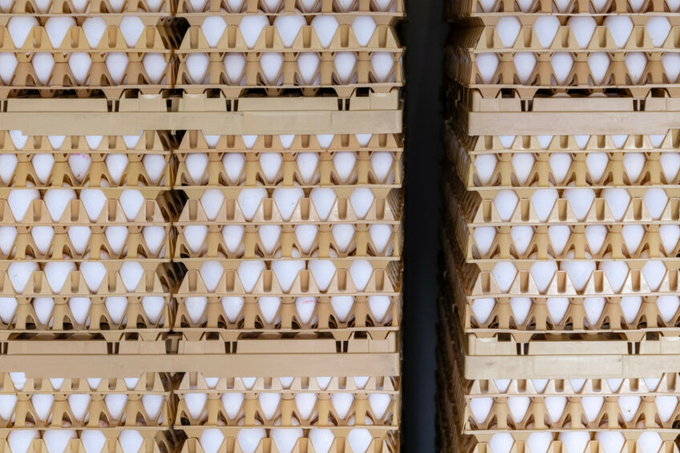November 25, 2025 | 03:45 GMT +7
November 25, 2025 | 03:45 GMT +7
Hotline: 0913.378.918
November 25, 2025 | 03:45 GMT +7
Hotline: 0913.378.918

Ukrainian eggs are reportedly 20-30% cheaper compared to those manufactured by Bulgarian farmers. Photo: Canva.
Overwhelming imports are believed to be the key factor preventing the industry from recovering after a devastating bird flu outbreak at the end of 2023. The Bulgarian government appealed to the European Commission, requesting to protect egg manufacturers “from negative market trends emerging as a result of imports from Ukraine”.
“The procedure for preparing a written request to the European Commission has already been kicked out,” Georgi Tahov, Bulgarian Agricultural Minister, outlined during a press conference.
On 2 July, the European Commission reimposed tariff quotas on Ukrainian eggs, subjecting imports to a €89 per tonne duty. Bulgarian farmers insist the measure is not sufficient and seek a full ban on Ukrainian egg imports.
In 2024, Bulgaria experienced a 400% hike in imports of eggs from Ukraine, Daniel Bozhankov, chairman of the Association of Industrial Poultry Breeding, has estimated. According to Bozhankov, the import duty doesn’t work – it is equal to only 5% of the wholesale price of eggs, so failed to curb the import flow. In fact, the deliveries have even picked up since the measure was introduced.
Bozhankov claimed that in May, nearly 311 tonnes of eggs were imported into Bulgaria, while in July, only two regions – Veliko Tarnovo and Dobrich – saw 432 tonnes land on their markets. Given the size of the Bulgarian market, the figure is enormous, Bozhankov stated, adding that cheap imports incur “millions of losses” to local farmers.
The Association of Industrial Poultry Breeding is not backing down. They are demanding that the authorities urge the European Commission to activate the ban on Ukrainian egg imports within 120 days. If their demands are not met, they are prepared to escalate their protest with a mass rally.
Ukrainian eggs are 20-30% cheaper compared to those manufactured by local farmers, Bozhankov estimated. He explained that Ukrainian manufacturers manage to keep the production costs relatively low, as they do not need to comply with European poultry welfare standards.
Overwhelming imports are also preventing the Bulgarian poultry industry from recovering from a large-scale bird flu outbreak that wreaked havoc in 2023. Over 1.5 million heads of laying hens were lost in the outbreak, leading to a significant drop in Bulgaria’s egg self-sufficiency from close to 115% to below 100%. This loss of self-sufficiency has deprived Bulgaria of its status as a net egg exporter.
(PW)

(VAN) Brazil's COP30 presidency pushed through a compromise climate deal on Saturday that would boost finance for poor nations coping with global warming but that omitted any mention of the fossil fuels driving it.

(VAN) Poultry farmers in the UK have been warned that they could face one of the worst winters yet for bird flu.

(VAN) Prices of main-crop paddy have risen sharply, with jasmine rice hitting 16,100 baht per tonne — the highest level in years.

(VAN) In Brazil, FAO unveiled a series of reports and initiatives showing how sustainable agrifood systems are a solution to the climate crisis.

(VAN) With names like neodymium and dysprosium, rare-earth elements sound exotic — and their perceived scarcity has only added to the mystique.

(VAN) In a new study published in Trends in Biotechnology, researchers used a gene-editing technology called CRISPR to increase a fungus's production efficiency and cut its production-related environmental impact by as much as 61%- all without adding any foreign DNA.

(VAN) A top official in Beijing’s Cop delegation says China is committed to clean energy – but US’s absence is a problem.